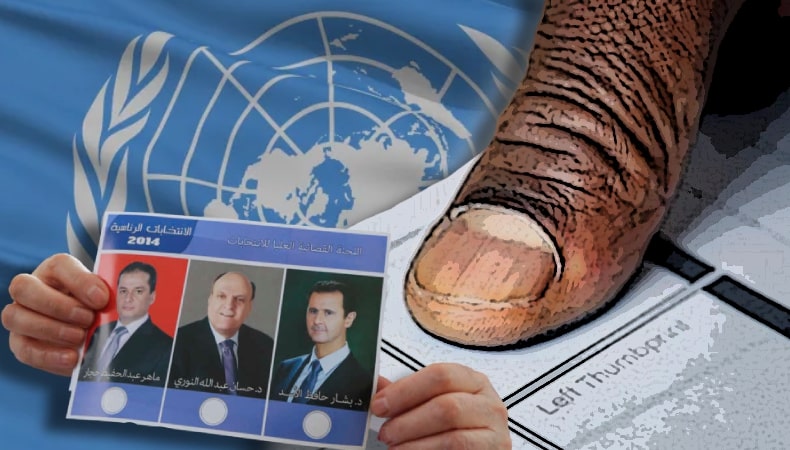Why Syrian Elections Are Not True Representation Of Democracy?

In what is being seen as the second election in a decade of civil war, Syrian Parliament has no one else but the current PM Bashar Assad standing for re-elections.
It has been made clear that these elections are not a part of the political process established under Resolution 2254. Further, the UN has specified that it has nothing to do with the election process and that the vote for the candidate has nothing to do with the Security Council resolution.
As an official voice for the UN Secretary-General Antonio Guterres, Stephane Dujarric said, that “For our part, we will continue to stress the importance of a negotiated political solution to the conflict in Syria.”
According to the Resolution 2254, the UN is mandated to facilitate a political process that culminates in the holding of free and fair elections in accordance with a new constitution, administered under UN supervision to the highest international standards, and that are inclusive of all Syrians including members of the diaspora.
Read more : First woman to run for Syrian presidential elections
But Assad seemed to have played his own sly politics to ensure that there is no fair election in Syria. He has been accused by Western countries (including members of the Security Council) of deliberately delaying the drafting of a new constitution. This has helped him avoid the UN-supervised elections.
According to Geir Pedersen, the UN’s special envoy for Syria, there has been a lack of “true engagement” by the Syrian regime of the people. Also, the political process has not succeeded in bringing about any tangible changes as yet, nor has it led to the adoption of a vision of the future for Syrians.
The future of Syria will again hang by lose threads unless there is a promise for a more well defined democracy. Most people are saying that this election cannot be seen as true representation of the people and therefore should not be considered to be free and fair.




